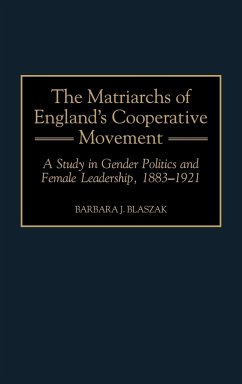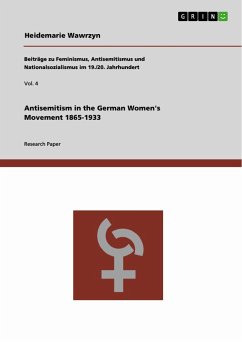Current thinking considers the Women's Cooperative Guild within the English Cooperative Movement to have been an independent and democratically run organization whose leaders built sisterhood across class lines and achieved many benefits for married working-class women. This study of the dynamics of gender within the movement between 1883 and 1921 arrives at different conclusions. Blaszak examines what freedoms of speech and activity women were permitted within the movement, as well as what resources they were given to accomplish their tasks. Ultimately, the parameters set by the men would determine the type of female leadership that emerged and whether it was able to realize its feminist and utopian agendas. Setting the organization's activities within the context of gender relations in the Cooperative Movement, Blaszak finds that the Guild was much more dependent and much less democratically directed than has usually been supposed. Restrictions established by male cooperators and enhanced by the realities of working-class life turned the Guild into a clique dominated by a few. Even the Guild's most revered leader, Margaret Llewelyn Davies, found it impossible to escape the gendered socio-economic circumstances in which she labored at her ministry to improve the lives of working-class women. Consequently, her leadership inadvertently assisted male cooperators in their attempts to limit possibilities for women.
Hinweis: Dieser Artikel kann nur an eine deutsche Lieferadresse ausgeliefert werden.
Hinweis: Dieser Artikel kann nur an eine deutsche Lieferadresse ausgeliefert werden.








